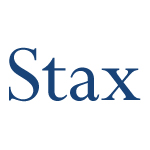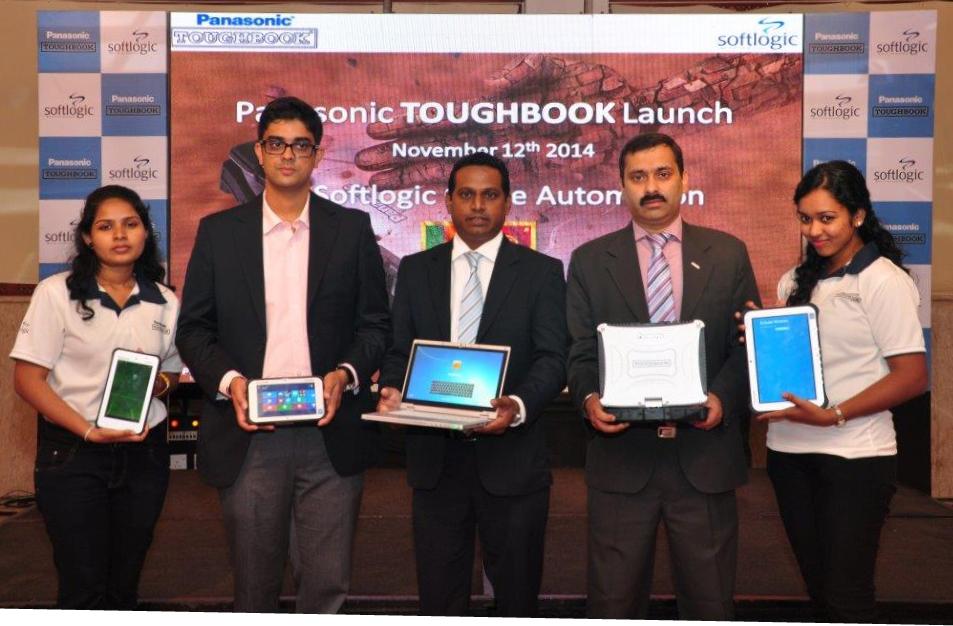
Stax celebrates 10 years in Sri Lanka
This year Stax, a global strategy consulting firm, headquartered in Boston, USA is celebrating its 10th year of operations in Sri Lanka.
Stax’s CEO Rafi Musher, together with its Managing Director Ruwindhu Peiris and Director Dr. Kumudu Gunasekera, discussed Stax’s history in Sri Lanka, the investment outlook for Sri Lanka and the Asian region as a whole, and the importance of positioning one’s business for emerging investment opportunities.
According to Rafi Musher, Stax provides data-driven and actionable insights to help global companies drive growth. With a 20 year track record of providing clients with strategic advice on profit improvement and M&A, Stax has become a formidable force in the strategy consulting space, competing directly with the big three global consulting firms (Boston Consulting Group, Bain, and McKinsey) and, boasting an impressive list of clients that includes 14 of the top 20 private equity firms and 27 fortune 500 companies.
“Global companies hire us to help drive growth because we provide actionable insights. Stax brings best practices on growth and profit improvement and we are in your backyard,” Mr. Musher said.
Mr. Musher explained how the caliber of people and promise of untapped resources drove him to establish Stax Colombo back in 2005.
“The cross country team structure enables a 24 hour cycle with fully integrated teams, which uniquely positions us to bring far more content to clients. The Colombo office is not a KPO; the emphasis has always been on value arbitrage and not cost arbitrage. The good thing is that this sharing of knowledge and expertise goes in both directions. Our Sri Lanka office can provide great content and insights to the US teams about a variety of industries, regions, and by using sophisticated research and analytic techniques. And the US teams can similarly provide our Sri Lanka office and Southeast Asian clients’ expertise on industry trends, best practices and how to identify profit opportunities. I personally work with colleagues in Colombo as I would in Boston or Chicago.”
Mr. Musher went on to discuss the growth opportunities in the region. Asia currently accounts for ~30% of global GDP, and this share is expected to grow to ~52% by 2050. The growth of business needs – whether local, regional or multi-national are increasing as are the spending capacity of consumers. Wherever there is growth and change, you want people who can understand that change and identify the opportunities quickly – which is Stax.
We believe that multi-generation family businesses and increased private equity investment in the region will contribute to growth further. Family businesses with additional generations in the office are expanding their areas of interest. Private equity firms around the world are looking to capitalise on the economic growth and investment opportunities in the region, with the average Asia-focused funds size growing steadily over the last few years to reach $422M in 2014 (compared to a low of $197M in 2009). Additionally, dry powder, which refers to private equity funds available for investment, currently stands at $129B, indicating opportunities for corporations and growing family run businesses to take advantage of this significant investment pool to leverage for growth.
“Knowing where you can win now, where you can win later and what to avoid entirely, creates substantive value. Whether you are an executive or investor. This is the reason large and middle sized company executive teams call on Stax, and why major private equity firms call on Stax.”
Echoing the CEO’s statements, Dr. Kumudu Gunasekera, discussed the importance of positioning one’s firm for attracting investment.
Many companies perceive lack of funds as an impediment to growth and often look to raise funds through either debt financing or an IPO. However, this might not be the best option for a firm at a given time. It is important for a business to evaluate where its current opportunities lie, and to then assess which funding options can best grow the business, Dr. Gunasekera said.
He also stressed the importance of exploring other avenues of funding such as private equity investment rather than immediately listing a firm on the CSE. The influx of smart capital will allow a well-established company listing that will garner a higher valuation. Having a mature, well-positioned listing in the CSE is important for the company as well as the CSE.
“There is a misconception that all capital is equal,” Dr. Gunasekera continued. Stax’s goal for clients is to attract smart capital which not only brings in funding, but also provides industry expertise, geographic reach, access to wider supply and sales network, and drive toward exit at a higher valuation.
Stax specialises in assisting companies develop strategies to achieve desired growth objectives, with higher margins in shorter time periods. Contrary to traditional methods, Stax’s approach is to not to seek funding immediately but rather evaluate all options available, so that management teams can make the most informed decision.
Businesses looking to attract smart capital need to think about how best to position the firm for growth, and set themselves up as an attractive source of investment for the investor community. This includes preparing the management team with a clear vision and path to growth, and developing a strategic road map that showcases double digit growth prospects, he said.
“Investors want to put money into companies that have a strong strategic road map and vision. Stax can help position your firm as an attractive investment opportunity for future investors by helping you understand and prioritize a strategic vision,” Dr. Gunasekera said.
He also discussed how many companies with strong growth potential often fail to capitalise on opportunities as they are reluctant to trade equity. Trading equity for smart capital can position a firm for higher growth and a higher valuation in the longer term. Identifying and attracting smart capital is vital, given the large amounts of dry powder in the market, he added.
Ruwindhu Peiris discussed what this meant in the corporate context.
With significant untapped opportunities in the region, there are a number of strategies local companies can adopt to achieve substantially more growth in short order. Not all growth has to come from funding; sometimes the opportunities lie internally, and part of Stax’s approach is to help clients assess opportunities within the firm, and recommend operational improvements that can lift the margins and bottom line, Mr. Peiris said. This profit improvement creates extra capital to deploy for additional opportunities, accelerating value creation.
In any field Stax can help a business to:
- Identify most attractive adjacent and new market opportunities
- Help clients create solutions and services that align with current and emerging customer needs and market trends
- Use analytics to optimise operations and improve incremental profit
“High growth industries in the region like Tourism, Healthcare and Retail are abundantly rich in untapped data assets that hold insights to accelerate growth and optimize spend. Stax solutions such as “High-Yield Segment Targeting”, “Media Spend Optimisation” and “Revenue Maximising Pricing” have helped global companies unlock actionable insights from their data assets and deliver tangible results in under six months“
Mr. Peiris went on to describe specific areas of opportunities in each of these high growth industries.
Millennials (those born after 1980) are entering their peak earning years and currently account for around one-third of all business travel expenses. In the next 5-10 years they will provide the majority of spending for travel and leisure. Being tech-savvy, they rely heavily on online information sources and are sophisticated travelers who carefully plan their trips. With “High-Yield Segment Targeting” companies in the leisure sector can engage with potential guests online at different stages of their travel with the winning messaging to reach the right audience at the right time.
He also highlighted growing opportunities for businesses in healthcare, as demand is increasing fast due to an aging population and high prevalence of chronic diseases such as diabetes.
In 2012, public healthcare expenditure in Sri Lanka accounted for only 40% of the country’s total healthcare expenditure, with the private sector accounting for the balance. Further, Out of pocket (OOP) expenditure by consumers on healthcare services accounted for over 80% of private healthcare spending in 2012, indicating patients’ willingness to pay for what they perceive to be high quality of care.
Retail spend in the region is also on an accelerated growth path, with the emergence of Asia’s middle class. Stax’s work with global retailers has shown that most retailers tend to overprice, as well as under-price several items within their key product categories—essentially leaving millions of dollars on the table. There is a great opportunity for retailers in the region to leapfrog on strategies already tried and tested in the West in optimising the thin margins in this industry by using data analytics from “test and learn” platforms to tweak most effective promotions and loyalty plans.
About Stax
Stax Inc. is a global strategy consulting firm with offices in Boston, Chicago, New York, and Colombo, Sri Lanka. Founded in 1994, Stax works with leading private equity clients, and also provides a range of services for corporations. For its private equity clients, Stax provides actionable insights that helps validate their investment hypothesis, identify and prioritise growth opportunities and uncover red flags. Stax also helps corporate clients to grow both organically and inorganically. With regard to organic growth, Stax can help clients to bring more revenue to their top line by optimising internal operations such as marketing spend, or inventory and pricing dynamics. For companies considering inorganic growth, such as M&A or JVs, Stax provides services such as acquisitions screening and opportunity prioritisations.
For more information on Stax services contact Dr. Kumudu Gunasekera at kumudug@stax.com or visit www.stax.com


